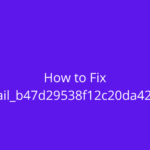Some of the questions I hear the most about writing are “how to write more”, “what to do to write faster”, and finally “how to write a book fast”. In this article, you will find specific, real-life methods, based on my writing experience and professional copywriter that will allow you to write more in less time. In my opinion, they are really invaluable if you plan to write your own book.
1. Think about what you will write about.
Banality? Not at all!
On a very general level, you are of course behind you if you have already developed a plan for your novel or received guidelines for the text you are preparing. However, this is also useful advice for those who do not create any kind of outlines and prefer spontaneity in their writing. This tip is about answering the question “what am I going to write about” with the first sentences or paragraphs before we sit down to write. Even a very general plan of what is going to happen in the next scene or what the thought we want to include in the following sentences has a kind of power to stop a “clerical block”. Most writers and copywriters admit to struggling with the paralyzing power of a blank sheet of paper from time to time, so it’s worth taking care of a good start in your writing sessions, and we will reduce our own frustration and thus save a lot of time.
2. Just write (no editing or proofing!).
The time spent writing is the time you write, the proofreading and editing stage follows.
This is one of the proposals that not everyone will like. There is a reason, however, with all my heart, I encourage you to try it. Personally, I think this is one of the most effective ways you can write your book faster than you would otherwise be able to do.
According to Nexus Ghostwriting, The most extreme approach is the absolute focus on creating the next sentences, during which we do not even correct typos and errors in the text. A slightly less radical option is to give up corrections when they require more thought and focusing on the text (e.g. major errors in the plot). It’s an approach that allows me to write a book much faster than I’ve ever done before. I allow myself to correct typos or obvious mistakes, but I avoid looking for synonyms, other adjectives or improving specific sentences. With this method, I am sure I can write books much faster and stay motivated by self-criticism.
What to do in return?
All you need to do is select the appropriate fragment with a different color, circle it or add a comment. This way you will not miss them while editing, and you will also be able to continue writing a book or other longer form without shifting your focus to other activities.
Why is it working?
Because…
“You cannot edit a blank page.”
– Jodi Picoult
It is also an approach that very effectively silences our inner critic, because by focusing solely on writing, we do not give him space to judge the text. And an overly active critic is one of the biggest blockages that prevents people from successfully writing books.
3. Set up your own sessions of intense attention.
How long are you able to maintain maximum focus? This is how long your writing session should last, the so-called “sprint”. It is pure writing time, one in which we minimize all distractions and allow ourselves nothing but writing or staring at a blank page.
It may surprise you that for many famous writers such a time of full concentration on writing is “only” 15, 25 or 30 minutes. whether they are writing about world health days or in a totally different niche.
After this time, you can look at social media, stretch out, talk to someone or start making tea, researching small elements that will enrich your text or finding synonyms of specific words. Which is what usually demands that we stop writing our book.
What can help you with this?
It is definitely worth using a timer on your computer or phone here to avoid the distraction of checking your watch regularly. You can also look for sprint websites where you will find a built-in timer and other options such as a counter for written letters or words, as well as various writer applications and programs.
However, it’s worth remembering that the purpose of such sprints is primarily to focus on writing.
Why is it working?
Research shows * that multitasking (performing several activities at the same time) reduces the efficiency with which we perform a given activity, as opposed to short periods of focus on one type of task (these in turn minimize the work that our mind has to do).
Writing sprints allow us to write more, but also reduce body fatigue. The long-term advantage of this approach, however, is to teach our mind that writing sessions are sometimes focused solely on this task, and are immediately followed by periods of rest and distraction that relieve tension. This approach will make you not only write more, but also write your books faster in the future.
* Source: American Psychological Association Research Overview, March 20, 2006
4. Try the Pomodoro technique.
If you like ready-made recipes that are worth acting by, this point is definitely for you. Pomodoro is a more structured technique that can successfully incorporate the “sprints” described above. It was created by Francesco Cirillo in the 1980s and still functions as a very effective method of organizing time and work.
- Decide what type of task you will be doing.
- Set the timer (in the original version it is 25 minutes).
- Work focused on the task.
- Finish your task as soon as the alarm goes off. Mark on the piece of paper how many Pomodoro’s you had (how many times you repeated the work for 25 minutes).
- Time for a short break (in the original version it is 3-5 minutes).
- Repeat the entire process 4 times. If you complete a task, you can proceed to the next one without renewing the time.
- After 4 “Pomodoro” (you have already worked 4 times for 25 minutes) time for a longer break (in the original version it is 15-30 minutes).
- Start the whole process from the very beginning.
You know yourself best
Are you the most effective in the morning, afternoon, dark or at night? Prefer to work and write for 5 days, resting on weekends vs. to write only on days off? You are able to write the most by hand, on the computer, and perhaps by changing your voice to text. Do you enjoy dialogues, nature descriptions or action? To write more and write a book faster, use whatever information you know about yourself.
You liked this article and want more? Be sure to leave a comment and follow this blog to receive information about each new entry.













